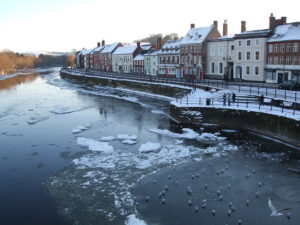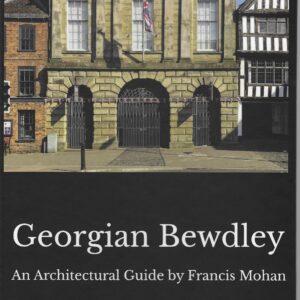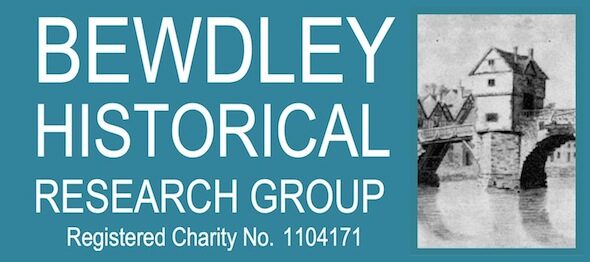Welcome to Bewdley Historical Research Group.
Who are we?
Bewdley Historical Research Group is a collection of people committed to advancing the education of the public and protecting historical documentation regarding all aspects of the history of Bewdley, Wribbenhall, Ribbesford, Dowles, and the surrounding area. We are passionate about the vast and crucial links between Bewdley’s history.
What do we do?
Bewdley Historical Research Group carries out research around Bewdley’s history. We then disseminate the results, individually and in groups, to aid our understanding. We also accept and continue to care for historical documents relevant to Bewdley and the surrounding areas, and produce historical publications to add to our collection.
How can you support us?
As a charity, Bewdley Historical Research Group is entirely run by volunteers and your support helps us to continue our important research and the conservation of our collection. You can support us by becoming a member or donating. Click here to find out more.

A Brief History of Bewdley
Below is a brief history of over one thousand years of the history of Bewdley and the surrounding areas, created by members of the Bewdley Historical Research Group.
Our awareness of Bewdley’s history first starts with a mention of Wribbenhall (Gurbehale) in the Domesday Book 1086, by 1100 the manor and town had been gifted to Ralph Mortimer. By the late 13th century, the manor was referred to as Bewdley (thought to stem from ‘Beaulieu’ in French and meaning ‘beautiful place). In 1461 Bewdley became a royal manor when Edward IV became king. The town was granted a borough charter after the inhabitants of Bewdley did the new king a great service at the Battle of Tewkesbury (1472). Bewdley continued to be a royal manor under the Tudors. The Council of the Marches met at the palace of Tickenhill for six months of the year. Tickenhill palace is where Prince Arthur was married by proxy to Catherine of Aragon in 1499. The Severn was once the second busiest river in Europe, boats could come upriver to disgorge their goods at Bewdley, where packhorses carried wares west into Wales and east to Birmingham and the Black Country. At one time, the quaysides of both Bewdley and Wribbenhall were dominated by warehouses. There was no serious decline until the early 19th century after the building of the Staffordshire and Worcestershire Canal. The Severn Valley Railway was opened in 1862 with a station for Bewdley on the Wribbenhall side. Bewdley and Wribbenhall were municipally re-united in the 1930’s though they are still separate parishes. They are linked by a fine Telford bridge of 1798, which replaced the one from the 15th century. The 20th century brought more fame for Bewdley as the birthplace of three-time Prime Minister, Stanley Baldwin. The 21st century has seen the town’s precious historic buildings being preserved from flooding by the Severn with the completion of a flood defence system, which is called into use when the river threatens to overflow the quay.
For more information about Bewdley’s History please click here or to view our publications please click here.
Popular Publications:
-
 Bewdley During the War Softback£9.99
Bewdley During the War Softback£9.99 -
 Bewdley During the War Hardback£14.99
Bewdley During the War Hardback£14.99 -
 Georgian Bewdley Hardback£14.99
Georgian Bewdley Hardback£14.99
Bewdley Historical Research Group
The Kenneth Hobson Room,
18 Load Street,
Bewdley DY12 2AE
